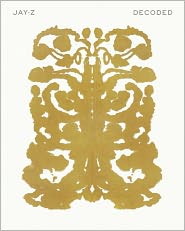Hispanic literature has long held a special place in my heart. It began when I first discovered the work of Chilean poet Pablo Neruda, which for me was and still remains some of the most strikingly sensuous poetry I’ve ever read written by a man about a woman. This was not the only style of poetry Neruda had written, but it was what struck me most. I was about 16 or 17 years old when I discovered him, and I’d curl up in a chair or sit riveted on the NYC subway reading his work, trying to imagine what it was like to be the woman who evoked such beautifully written, passionate verse from a man. He seemed knocked to his knees in full, all out adoration and love and I marveled at it.

Neruda recording his poetry at the U.S. Library of Congress in 1966.
Neruda was described as “the greatest poet of the 20th century in any language” by the Hispanic author I discovered next – and to this day still experience a deep fondness for — Columbian novelist Gabriel Garcia Marquez.
Nearly 35 years ago I purchased Gabriel Garcia Marquez’s One Hundred Years of Solitude after it was recommended by a Greenwich Village bookseller who said it was an important work that I must definitely read. He was not mistaken. I was left awestruck, breathless, and completely enthralled. Not only had I never read anything like it for its intense and vibrant magical realism, for the first time I became fully aware through literature that there were people on the planet who experienced entire swaths of things in a vastly different way than I or anyone I knew.
Now don’t get me wrong, as a member of a minority race with a long-standing history of egregious abuses by the country’s majority, I’d already experienced my version of this on many different levels. Yet here I was a young voyager on a sea of personal discovery, believing myself quite interesting and unique, when suddenly I came to realize that I was in a very particular way like most every other American: naïve and narrow-visioned about the rest of the world. This was before there was at least a nod to Hispanic Literature in most US colleges, way before the rest of the world had been lassoed in to the west by the Internet, and long, long before Oprah’s Book Club.
It was after reading One Hundred Years of Solitude that I recognized myself as a westerner.

The 1970 mass market edition I purchased back in the day.
I now understood what a friend had meant when she said that if I visited Africa I would be viewed by Africans first as an American or westerner then as someone of African ancestry.
After reading Garcia Marquez the world splayed itself wide open and began to reveal treasure and beauty to me in experiences related in the literature of people from all over the planet whose contemplations I’d never really considered before, nor thought about long or deeply enough to even care – I was far too concerned about my own existence and those like me. Now I hungered for a sense of what these “others” experienced, to hear their voices, thoughts and concerns recounted by storytellers writing from their unique cultural perspectives – their worldview.
It is in some part because of Gabriel Garcia Marquez that WorldView Booksellers has its name, though today I embrace much more in the term “worldview” so it now includes a spiritual connotation as much as anything else.

Gabriel Garcia Marquez, winner of the 1982 Nobel Prize in Literature
And though I admit I was quite young when he first came across my radar, I nevertheless remain indebted to Gabriel Garcia Marquez for beginning the process of extending my view of the world quite unlike anyone else had – spiritually or otherwise – before him.

Diane Lanevi
December 2, 2010
Pablo Neruda – great to see you discuss him here! I was recently introduced to him by a friend and have since purchased one of his collections of love poems. Pure beauty in words. He should be far more famous than he is and all MEN should read his words as we, women, bask in his sense of sentimentality and human emotion.